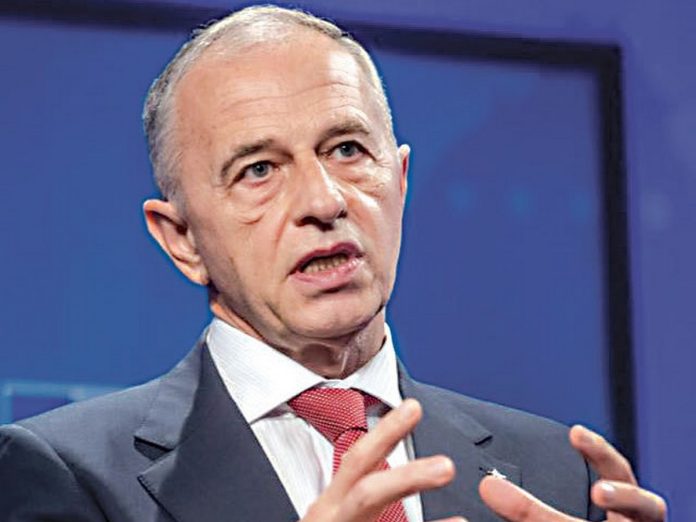The unrestricted access to education and health provided by the Constitution is an abstract text for many Roma and poorer citizens in Romania, NATO Deputy Secretary General Mircea Geoana said.
The Constitution guarantees full equality before the law, equal opportunities in society, free and unrestricted access to education, to health. Unfortunately, for many of our Roma citizens and the poorer people of this country in general, this remains (…) a piece of paper, an abstract text that in everyday life does not represent much (…). It is an important day, which should remind us of the things we are not doing well enough in Romania for social inclusion, for equality among us, said Mircea Geoana, on Monday, in the video message he sent to participants at a conference organised by Roma for Democracy, on the occasion of International Roma Day.
According to him, the World Bank also mentions that Romania loses billions of euros per year because Roma youth and children do not have access to a proper education, which is a huge loss for the country.
Many Romanian children in rural areas, from disadvantaged backgrounds, unfortunately do not have a fair chance to go to a fair school. We need to work on education and mentalities, but especially on this culture of democracy and respect for our fellow human beings, said Mircea Geoana.
According to US Ambassador in Bucharest Kathleen Kavalec, the Roma community and citizens continue to suffer from marginalisation, systemic discrimination and violence.
As Carmen Gheorghe said, (…) in Romania Roma communities start where the paved roads, running water and electricity end. Far too many Roma in Romania continue to live in a constant state of fear and insecurity, not knowing whether their homes will be demolished, their children prevented from going to school or whether they will be victims of harassment, hate speech or violence. Building a happy and prosperous life for you and your children in the face of these obstacles is a huge challenge (…) I challenge all of us to engage in the difficult discussions, to acknowledge our shortcomings and to work courageously together to overcome centuries of stigma and discrimination, said Kathleen Kavalec.
She assured that the US Embassy is proud to support Roma in Romania and around the world and noted the important progress in opening Romanian institutions to Roma culture.
She congratulated the Government, Parliament and the Ministry of Education for including a lesson on the Roma Holocaust in the new compulsory curriculum on the Holocaust.
Swedish Ambassador to Romania Therese Hyden pointed out that the Roma are the second largest national minority in her country. The diplomat pointed out that Sweden has a strategy for national minorities that focuses on anti-discrimination, inclusion, participation, language and cultural identity.
Last but not least, according to British Ambassador to Romania Giles Portman, building an inclusive society is not easy, it can take a long time and it is important that people from marginalised groups are encouraged to reach their potential.
AGERPRES




